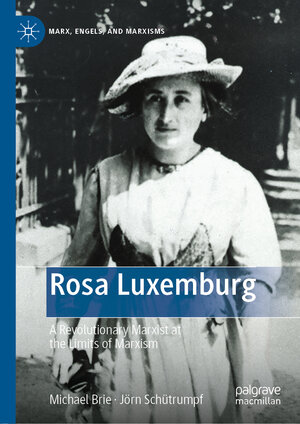
This book analyses the development of Rosa Luxemburg (1871–1919) as an outstanding Marxist thinker and socialist politician in the era of imperialism and revolution. Identifying the driving force behind Luxemburg’s development as the deep unity between her passionate, emphatic life and her political and theoretical work, the authors retrace the inner dynamics of its different stages while highlighting the deep rupture caused by the experience of the Russian Revolution. On the basis of new publications of her Polish works and other writings, Luxemburg's strategic approaches are located in an Eastern European context. The authors discuss Luxemburg’s unique analyses of the first experiments in socialist participation in government, of the first Russian revolution and of the forms of accumulation of capital to outline the foundations of her novel understanding of both democratic-socialist revolution and of a society that would point beyond social democracy as well as Bolshevism –a vision that will gain new significance in the twenty first century. This book looks upon the lasting heritage of Rosa Luxemburg as the groundbreaking thinker of the unity between democracy and socialism.



